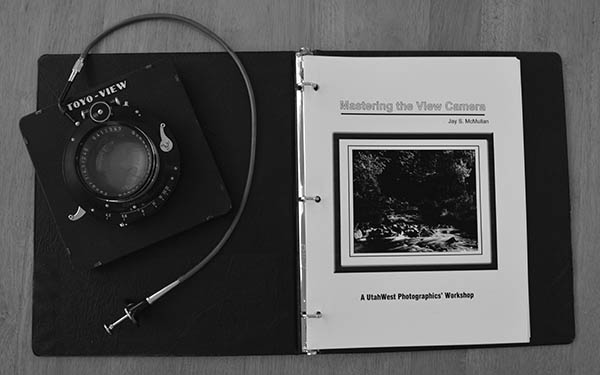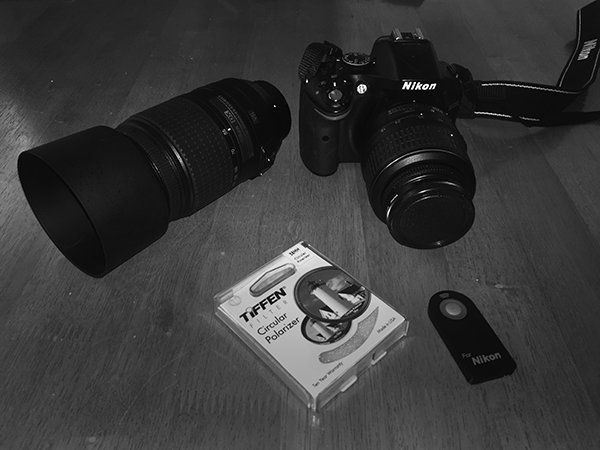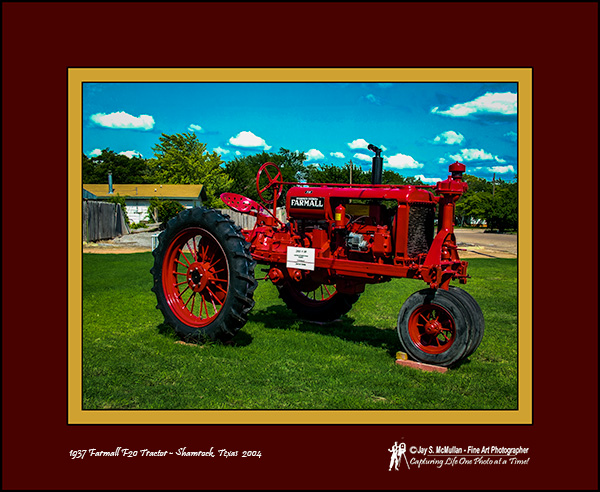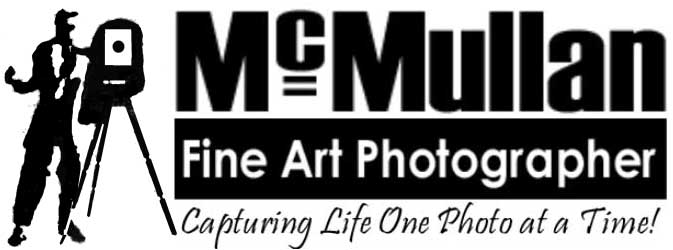Photography Seminars
I am currently planning to launch a new series of seminars that will focus on both the artistic and technical sides of photography, tailored to photographers of all experience levels. These sessions will include classroom time and in-the-field shooting across various locations in the United States.
Mastering the View Camera

I acquired my first large format camera in 1992 when I traded a motorcycle for an Omega 45D 4x5 view camera and a broken down Besesler condenser enlarger. A few years prior to that I had owned and operated a photography studio in my hometown and was familiar with 35mm and medium format cameras but the view camera was a whole new ballgame.
I had always admired Ansel Adams' photograps so I bought his three book series, The Camera, The Negative and The Print. I began to study the Zone System and a brand new way of photography opened up for me.
Several years later, digital imaging marched onto the scene and people ditched their film cameras. Certain kinds of film and processing paper became obsolete. Thankfully, not all of it went by the wayside.
There has been a resurgence in people wanting to photograph with film cameras. I shoot with a digital camera but I'm not as pleased with the results. No matter how good a digital camera is, it just can't match the image that a view camera can yield.
I had the pleasure of living in Utah from June 1993 to December 2008 where I got to perfect the art of using a view camera and of making black & white photographs, color photographs and color transparencies. Eventually, I began to hold "Photo Tours" where I would invite people from all across the country to come to Utah to spend a couple of days photographing with me. Out of those Photo Tours, I began to write Mastering the View Camera which is a simple to understand guide to using the view camera. I made the workbook available as a stand alone workbook and also offered it along with a two to three day, hands on photography seminar. Mastering the View Camera is available and view camera seminars are available.
Topics covered include:
- Camera movements explained
- Understanding the Scheimpflug principle
- Controlling focus and depth of field
- Loading and developing sheet film
- Choosing lenses for view cameras
- Zone System fundamentals
- How to set up a tripod and view camera properly
- Proper focusing technique using a loupe
- Filter selection
- Darkroom workflow tips
- Field techniques and setup
- Metering with spot meters
- Perspective and bellows use
- Film holder prep and loading
- Flash meter techniques
- And more!
Items required for a Mastering the View Camera seminar:
- 4x5 View Camera (or larger)
- At least one lens with lens board
- Tripod capable of supporting a view camera
- Dark cloth
- Loupe (4x to 6x magnification)
- Light meter (spot meter preferred)
- Film holders (loaded with film)
- Cable release
- Filters (polarizer, ND, color correction)
- Notebook and pen
- Lens cleaning supplies
- Carrying case or backpack
- Gaffer’s tape
- Small flashlight or headlamp
- Weather-appropriate clothing
- Positive attitude and patience
Digital Photography Basics

Many people, wrongly belive that you must have a very expensive camera to get great photographs. Until digital cameras came into being, a 35mm camera was a 35mm camera. There were no cropped frame sensors or full frame sensors. Now, you must decide if you want to spend a small fortune to purchase a full frame sensor digital camera or save some money and buy a digital camera with a cropped frame sensor. There are some definite differences but you don't have to have the most expensive cameras to get beautiful photographs.
In this course, we will go over what camera to purchase to do the kind of photography you do. We will also go over the differences between a cropped sensor and a full frame sensor.
We will talk about why you should always shoot in the RAW format if your camera offers it.. We will also talk about digital file storage.
If you are new to digital photography or if you want to learn how to use your camera, this is the course for you!
Topics covered in the seminar are:
- Exposure triangle: aperture, shutter speed, ISO
- Camera modes: P / A (Av) / S (Tv) / M
- Metering modes and exposure compensation
- Autofocus modes & AF area selection
- White balance and color temperature
- Lens choices and when to use them
- Handholding vs. tripod; image stabilization
- RAW vs. JPEG: when and why
- Composition basics: rule of thirds, leading lines
- Working with light: golden hour, shade, flash
- Using histograms to judge exposure
- Shooting people, landscapes, and action
- Simple Lightroom/Photos app workflow
- File organization, backup, and archiving
- Color management and basic printing
- Recommended accessories & field checklist

Contact Jay McMullan for seminar availability and custom group scheduling.
